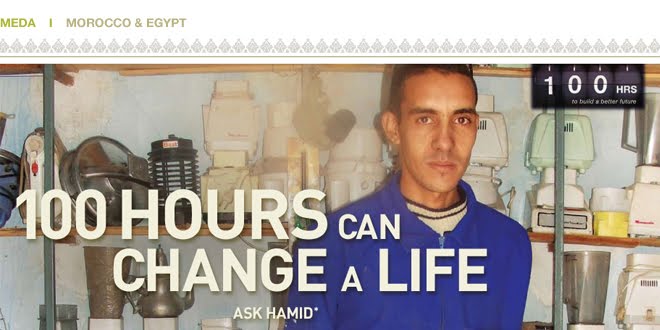
"During the French colonization of Morocco, our grandparents tell us, a new law required countrymen of the Middle Atlas area to send their children to school. This meant rural populations would be deprived of a traditional labor force – their large families. At a young age – 6 or 7 – children began to help their parents as shepherds or in other farming works. Families saw their children's future in the fields.
"But slowly, poor families began to invest in their children's education, hoping that one day, they’d become a state employee – primary school teacher, forest warden – who could provide for themselves, their parents and their extended family.
"Now, with a much higher cost of living, primary school teachers and forest wardens can no longer provide a decent life for their children, even in today's much smaller families.
"Middle class families who can more easily afford to invest in their children's education are only able to provide enough schooling to ensure their children attain basic financial independence from their parents when they become adults.
"In poor families, children are often kept at home to help with farming. Girls either stay at home to do the house work or are sent into town to contribute to the daily basic expenses by working in service. Such is the case for of thousands of young maids under age 15 who work for rich families in pitiful conditions."
MEDA's 100 Hours to Change program provides new options for unemployed youth in Morocco by giving them practical tools to begin building a better future.


No comments:
Post a Comment